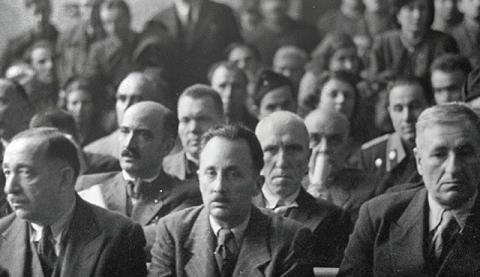Bulgaria Marks Day of Remembrance for the Victims of the Communist Purge

As Bulgaria observes the "Day of Remembrance for the Victims of Communism," the nation solemnly reflects on a pivotal moment in its history. Instituted in 2011 at the behest of former Presidents Zhelyu Zhelev and Petar Stoyanov, this day serves as a poignant tribute to the victims of a dark chapter that unfolded during the 25th National Assembly on February 1, 1945.
Termed the "Shot National Assembly" by historians, this fateful day witnessed the execution of 67 deputies, three governments, military personnel, and other prominent figures, casting a long and haunting shadow over the nation's past. Orchestrated by the People's Court, the proceedings were marked by dramatic live radio broadcasts, fervent public rallies, and an atmosphere steeped in intense propaganda.
One notable survivor of this tragic event was Prime Minister Konstantin Muraviev, who endured a life sentence, later reduced to 15 years, before regaining freedom in 1961. Notably, Bulgaria, despite being the only ally of the Third Reich not involved in World War II military actions, witnessed the most senior politicians being convicted due to the alliance with Germany.
Georgi Dimitrov's instructions from Moscow, demanding no acquittals, turned the People's Court into a tool for external influence, ultimately paving the way for the sovietization of Bulgaria. The night of February 1-2, 1945, saw the somber execution of the condemned over a pit in the Orlandovtsi district, an event indelibly etched into the collective memory.
The "Day of Remembrance for the Victims of Communism" not only serves as a solemn acknowledgment of the past but also stands as a testament to Bulgaria's resilience and determination to confront its painful history. After the fall of communism in 1989, a...
- Log in to post comments






